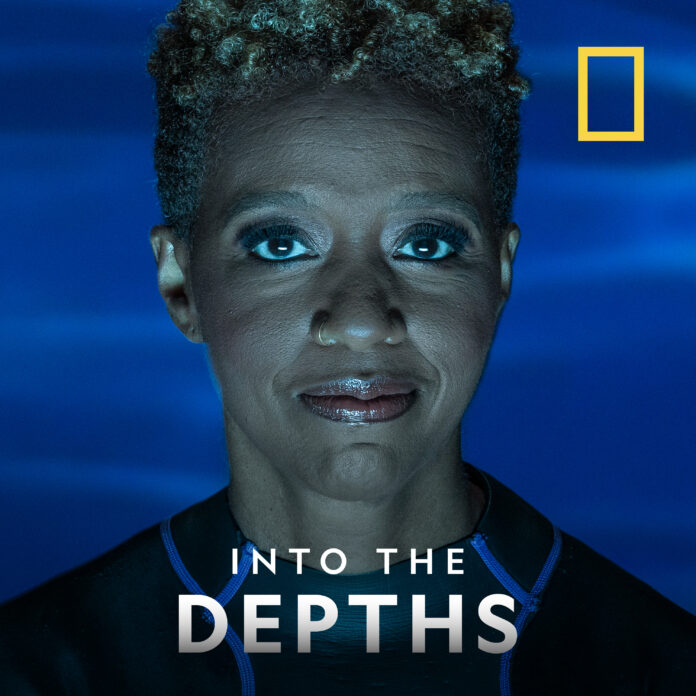( ENSPIRE She Did That ) Tara Roberts Joins Black Scuba Divers to Explore Shipwrecks from the Transatlantic Slave Trade and Reveal Untold Stories
ENSPIRE Contributor: Naomi Stamps
For Black History Month, National Geographic is releasing a podcast called “Into The Depths,” which is hosted by National Geographic Explorer Tara Roberts. This six-part series documents Tara’s journey while following Black scuba divers across the world. These committed explorers discover sunken ships from the Transatlantic slave trade that carried millions of slaves from the 15th to 19th centuries.
Besides scuba divers, this podcast will feature descendants of shipwrecks, historians, and some of Tara’s family and friends who will help tell these untold stories. The mission of this series is to honor slaves from the Middle Passage and offer a new perspective on Black history.
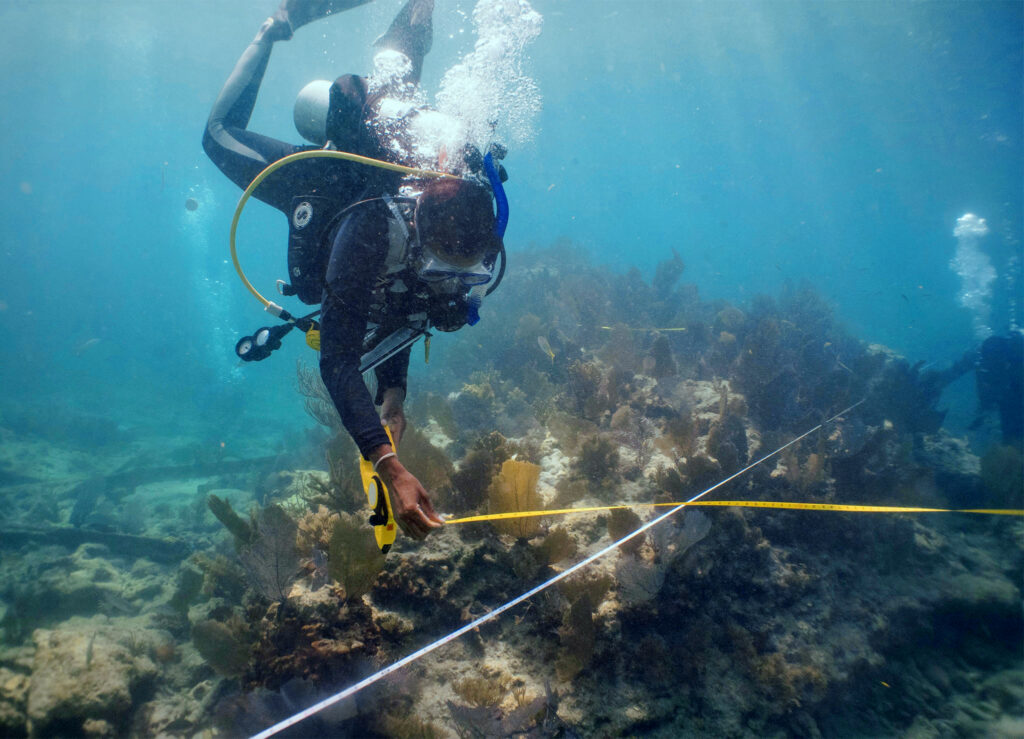
During a visit to the National Museum of African-American History and Culture in Washington D.C., a photo of Black scuba divers inspired Tara Roberts to search sunken slave ships. She wanted to be like the woman in the picture and got involved with Divers of Purpose, a group of Black divers who search for long-lost slave shipwrecks and the history behind them.
Tara Roberts was so committed, that she quit her job to devote her full attention to this cause and has learned much from this personal journey. “What I was experiencing was this sense of longing. I think this is a unique thing for African Americans. Where is home for us?” she asks in the fourth episode of the series.
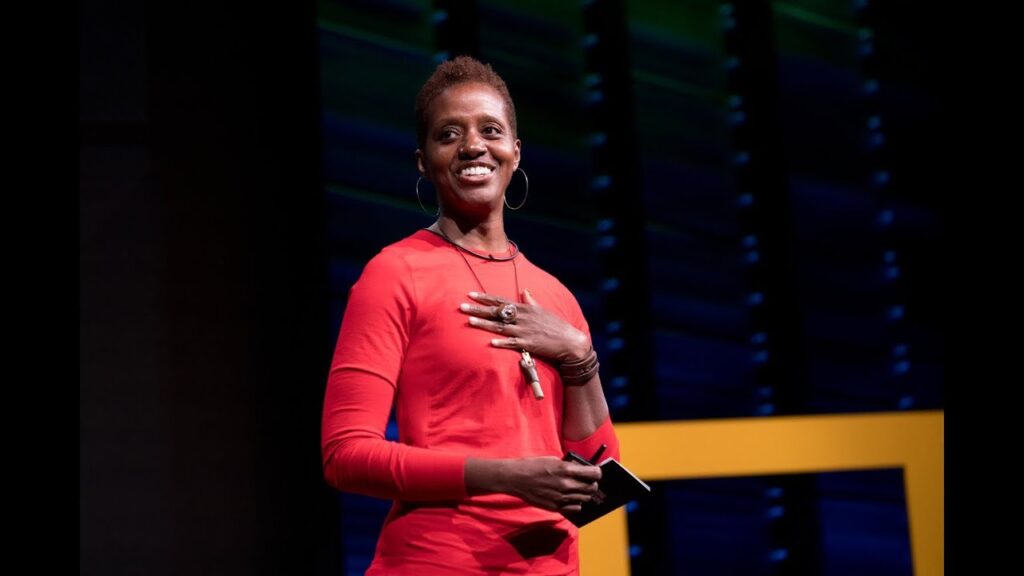
Photo courtesy of Tara Roberts.
Tara Roberts wants to rethink Black history and present it in a way to evoke empathy, complexity, and curiosity to dig further into one’s ancestral history. She’s crafting a long-form narrative on her experience as a fellow in MIT Open Documentary Lab. Besides exploring sunken ships, Tara Roberts has backpacked across the world to learn stories of female change agents to assist with funding and supporting their ideas.
She has worked as an editor for magazines such as Essence and CosmoGirl and published her own pro-female magazine. This explorer is committed to both learning about her history and helping others to tell theirs.
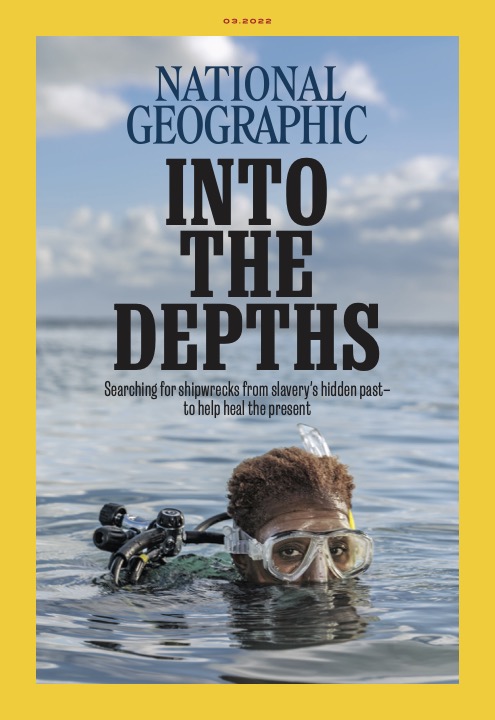
ENSPIRE spoke with Tara Roberts about her new podcast, quitting her job to scuba dive, and backpacking around the world.
Can you briefly tell us your backstory and how you got involved with National Geographic?
I’m a journalist and writer by trade and I was living in D.C. around 2016-2017. I took a little bit of a departure from the writing world and worked in the non-profit world doing communications. I was doing marketing type of work. I went to the National Museum of African American History, which opened in 2016. I think I went either later that year or early the next year when the madness around the opening calmed down. While I was there, I saw this picture of a group of black women in wetsuits on a boat. It really captured my imagination.
When I looked further at the picture, it turns out they were a part of this group called Diving with a Purpose. Their mission was to help search for shipwrecks around the world, so I was really blown away by that. I reached out to them and they invited me to dive with them. In order to dive with them, I had to get scuba training. It was a long journey of training with these divers. I quit my job in February 2018 and focused on figuring out a way to tell their story full-time. I ended up applying for a grant at National Geographic. When I committed myself to telling the story, many pathways and resources suddenly began available.
Whether I got the grant or not, wouldn’t have determined whether I was gonna tell this story. I was committed to it. Some months later, in September, I got a notification that I had gotten the grant from National Geographic. So it was really wonderful. It allowed me to travel with the divers to various locations they were working at. We went to South Africa, Senegal, Costa Rica, and around the U.S.. There’s not a mission in Benin Togo, but I went there as well. Because many African Americans can trace their roots from Benin Togo, including me. That’s how this whole journey started.
You left your job in order to follow Black scuba divers around the world to explore shipwrecks from the Transatlantic slave trade. What motivated you to make this decision? Were you nervous about it?
I wouldn’t say it was an easy decision and I was definitely nervous. I was definitely excited and it just felt right. The organization that I worked for is a wonderful organization on paper. It might work like a dream job in the communications world because I was Director of Communications. But my heart really was around storytelling. I knew I couldn’t really understand their work without traveling and seeing it firsthand, and I knew I couldn’t do that with a full-time job.
It felt almost like a no-brainer, even though I didn’t have a plan or tons of money saved up. But I was like “I just know it’s gonna work out.” I felt like it was just unfolding in front of me. It wasn’t like I had to force anything. I remember my last day in the office and the next day after I quit. When I woke up, I just felt great. One of my co-workers got married about a week after I quit and he was getting married in India. I decided to use my flyer miles to go to his wedding. I decided to stay in Southeast Asia and get all the dives in I needed to participate with Divers with a Purpose. I spent a lot of time sitting on the beach writing in my journal meditating, really settling into this choice, and allowing it to feel good.
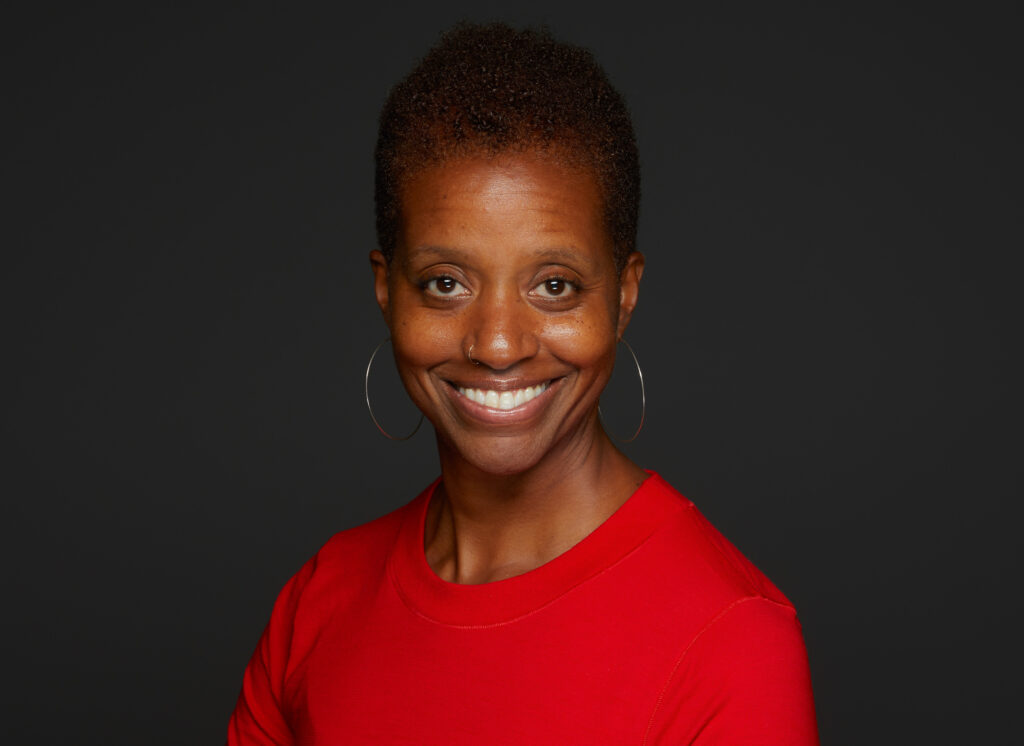
What has been the most exciting thing about your journey so far?
Oh so much. Me meeting the divers has been wonderful. They are really incredible human beings. Many of these divers are just ordinary people who love to scuba dive and wanted to make a difference in diving. Their special level of passion and commitment is really inspiring. I’ve made friends, which is wonderful. I’ve been able to visit places I haven’t gone to before. One of the places I visited was Mozambique, and I’ve never been to Mozambique before. It’s a tiny island that was the center of the slave trade for the Portuguese. To meet the ethnic group that was heavily trafficked, seeing their beauty and resilience, their commitment to also learning how to scuba dive, and helping to explore their harbors was amazing.
The same in Costa Rica. I traveled to different parts of Costa Rica before, but to meet the community that suspected they might be descended from people who came over on those ships is amazing. To dive in those spots and be a part of helping to bring up history is exciting.
Tell us about your pro-female and socially conscious magazine. What inspired you to create it?
The magazine no longer exists. Maybe if it was available online, maybe it would still be around. But ever since I was a teenager, I loved magazines. I used to collect them. I loved the marriage of images and words. This was way before the internet. But back then, there were very few magazines that had people who looked like me. I wanted to publish my own magazine and fill it with people who looked like me. So I was pretty much single-minded about that. I went to college, went to graduate school with all of this in mind, and ended up doing a publishing study program at NYU. I wanted to learn the business of publishing. I got that degree and experience in the field.
I started after grad school and was working at Essence during that time. I was thinking about what the magazine could be and planning it out. I always wanted to do a magazine that had a real edgy youthful kind of vibe, was multicultural, and had a strong emphasis on black culture. It took a while and I had to raise funds. But eventually, I got the funding and a lot of support. The magazine was called Fierce and the tagline for it was “Too Bold for Boundaries.” It was for women who were too bold for boundaries and it was an incredible experience. We had Lisa Bonet and her best friend Cree Summers on our very first cover.
We all flew to California and we photographed and interviewed Lisa and Cree in Lisa’s house and it was just beautiful because we were just folks. We weren’t well known but we were well connected. To get Lisa to agree to help us launch it and be on the cover was amazing. Eventually, we had Missy Elliot on the cover and we did some hard-hitting interviews. We were publishing for like 2 years. We were on newsstands, around the country, and in Canada, we really got out there, but in a really lovely way for an independent publication. I’m proud of the work we did.
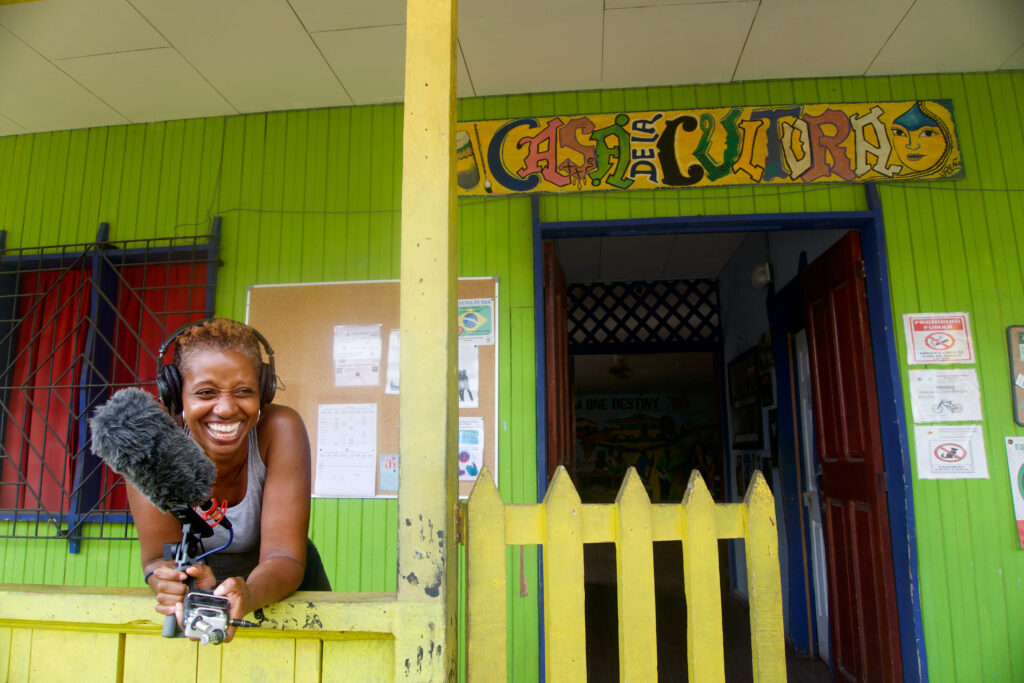
You backpacked around the world for a year to find female change agents and tell their stories. What’s one thing you learned from this experience?
Ooh yeah. That was another leap. At the time, I had been working at Cosmo Girl Magazine, which was a victim of the 2008 economic downturn. That’s when the magazine industry really shifted. Cosmo Girl died, but at the time, we had been doing work to support girl changemakers around the world. We used to give out grants to girls doing great things in the community. I loved what we were doing. I began to notice all of these American girls coming up with solutions for people in other countries. I remember thinking “But hey, there are lots of girls and young women in the country who are solving their own problems. Let’s highlight them and tell stories about what they’re doing.”
When the magazine ended, we couldn’t tell that story. But I wanted to meet these girls and let people know that girls rock, they’re doing incredible things, and they can be the drivers of change in communities. I was laid off from my job since the magazine ended. I took all the money I had in my bank account and sold all my stuff in my apartment. I got on the road and traveled for a year to 15 countries throughout Europe, Africa, and Asia. Even though we were all different, had different backgrounds, different circumstances, there was still some common thread and connection amongst who we were. I was able to see their community and they saw my community.
It confirmed for me that this is really a global world. We’re connected to these stories that are often not told and it gives a different perspective. I was telling stories about girls and young women, where their voices weren’t always honored or even acknowledged. So it confirmed in me to do that type of storytelling. Now I’m focused on telling stories about black divers, and the global slave trade.
What other projects are you working on?
Man, this project is taking all of my time. It’s estimated that as many as 1,000 ships may have wrecked over the centuries and to date, less than 10 of those wrecks have been found. There are lots of other stories and a lot of wrecks to find. I got quite a bit more work to do in this space and I imagine that’s gonna be happening for a minute. I think there are other ways to continue telling this story.
I’ll write a book about this work. I started out doing blogs entries. That was my first grant from Nat Geo and then that evolved into doing a podcast, which turned into this experience/narrative podcast. I didn’t feel like I could tell the story in 200-300 word pieces. It’s more complex and bigger than that. The history is just that big. I also think it would be amazing to build curricula off of this history to see more of this taught in other spaces. There’s still much more work around it. I’m excited to be doing it.
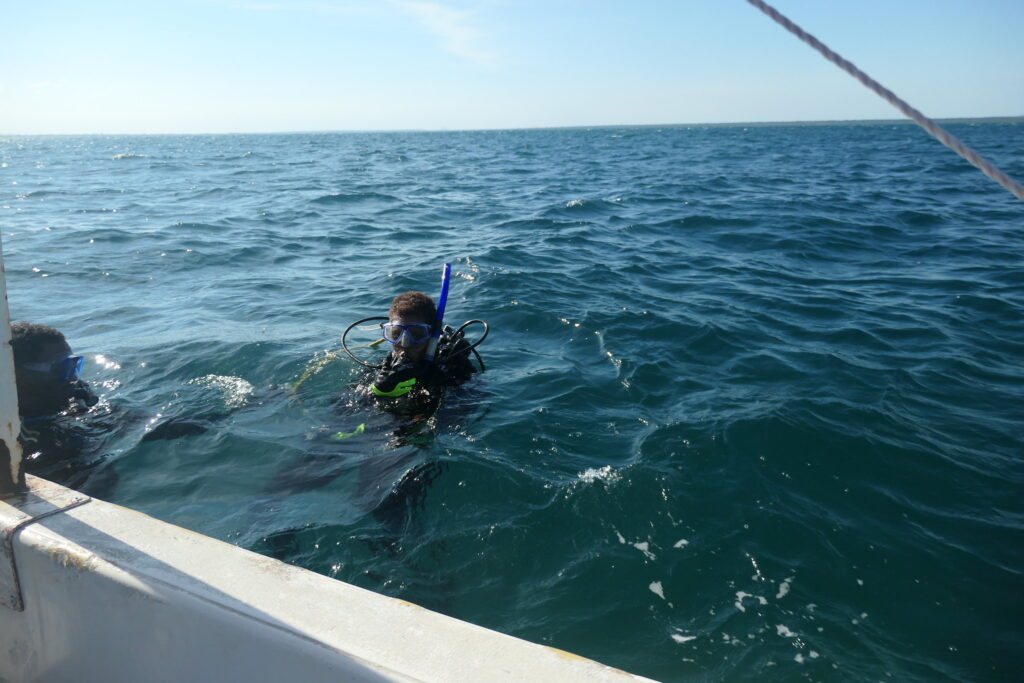
The dedication Tara Roberts has given towards this project is inspiring. She shows us we sometimes need to take large leaps to follow our passions and make a difference. It may not be easy, but you have to trust the process and keep pushing forward. Tara Roberts will be featured in the March issue of National Geographic Magazine, which was published on February 7th at natgeo.com/intothedepths.
National Geographic also aired a documentary called “CLOTILDA: LAST AMERICAN SLAVE SHIP” on February 7th on the National Geographic channel and can be streamed on Hulu the next day. Be sure to catch the “Into The Depths” podcast.
Follow Tara Roberts on Instagram.
Learn more about the podcast on the National Geographic website.
Another article you might enjoy: BIPOC Content Creator Bri Hall Launches ‘Count to Ten’ Podcast

